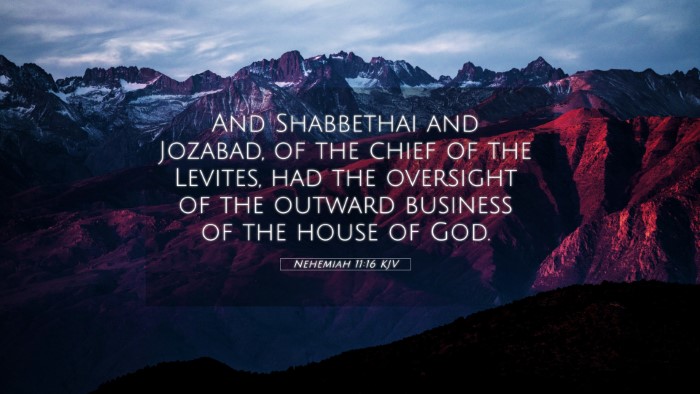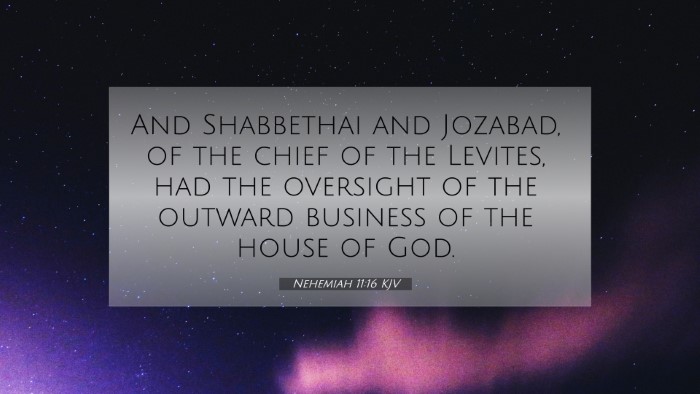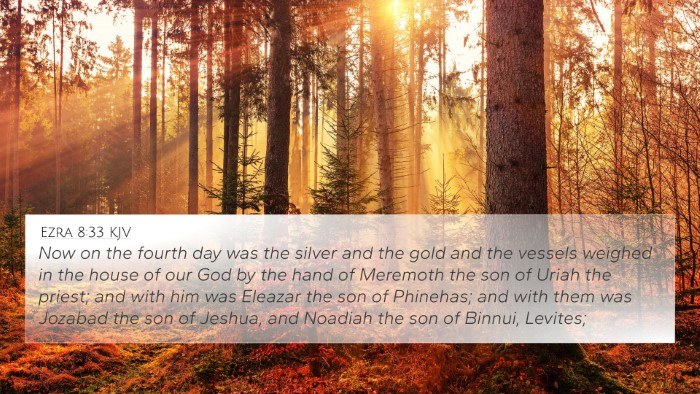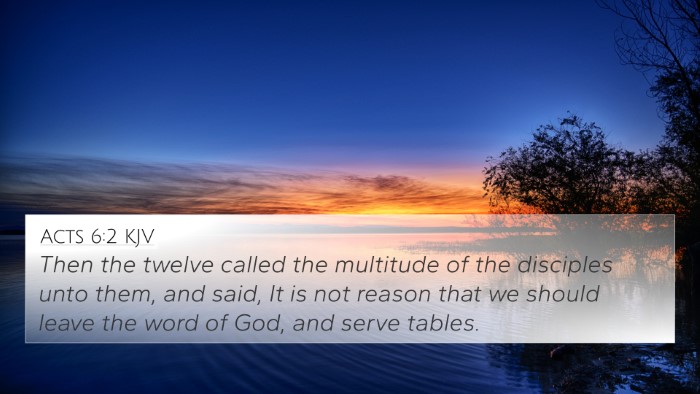Understanding Nehemiah 11:16
The verse Nehemiah 11:16 states:
“And Shabbethai and Jozabad, of the chief of the Levites, had the oversight of the outward business of the house of God.”
This passage highlights the leadership role that certain Levites had in facilitating the work of the temple. The responsibilities assigned to Shabbethai and Jozabad are crucial in understanding the institutional structure of the Israelite worship community after the exile.
Commentary Insights
Various public domain commentaries provide a depth of understanding regarding Nehemiah 11:16, elucidating both its historical context and theological implications.
-
Matthew Henry's Commentary:
Henry emphasizes the orderly arrangement and the organization of the Levitical priests, which reflect the holiness and reverence due to the house of God. The verse illustrates the importance of leadership roles in the worship community, suggesting that the structure established by Nehemiah served to enhance the worship experience.
-
Albert Barnes' Notes:
Barnes points out that the Levites had specific directives and oversight roles purposed to maintain the functionality of temple worship. He stresses how these leaders were crucial in ensuring that the outward aspects of worship—including maintenance and administrative duties—were conducted properly, which is pivotal for a pleasing worship environment.
-
Adam Clarke's Commentary:
Clarke delves into the significance of the individuals mentioned in this verse, suggesting that their roles symbolize the broader commitment to the temple and its rituals. The meticulous organization indicated in this verse also suggests a revival of proper worship following the Babylonian exile.
Thematic Connections
The roles of Shabbethai and Jozabad illustrate a broader theme found throughout the Bible regarding leadership and responsibility in spiritual settings. The connections between Bible verses reveal how consistent themes of stewardship and oversight are emphasized in multiple contexts.
Bible Verse Cross-References
- 1 Chronicles 9:22-26: Discusses the Levites and their specific roles and responsibilities.
- Nehemiah 10:39: Highlights the importance of the Levitical duties in relation to temple provisions.
- 2 Chronicles 31:2-4: Describes how the priests and Levites were appointed to oversee the offerings and provisions.
- Ezra 3:8: Explains the origins of the roles in terms of rebuilding the temple, connecting leadership with restoration.
- Deuteronomy 18:1-5: Outlines the rights and responsibilities of the Levitical priests, emphasizing their dedicated service to God.
- Hebrews 7:11-14: Reveals the continuation of priestly roles through Christ, linking Old Testament structure to New Testament fulfillment.
- Malachi 2:7: Discusses the significance of the priest's teaching and responsibilities in the context of spiritual leadership.
Conclusion
Nehemiah 11:16 serves to remind believers of the importance of organized leadership within the community of faith. As we explore various Bible verses that relate to this passage, we see the intricate web of scriptural cross-referencing that enriches our understanding of God’s design for worship and community. These connections help individuals grasp the significance of each role in both the Old and New Testaments, enhancing their study through thematic Bible verse connections.
Further Study Tools
For those interested in deeper study, utilizing tools for Bible cross-referencing such as a Bible concordance or a comprehensive Bible cross-reference guide can significantly augment the understanding of inter-Biblical dialogues and how various passages relate to one another. Engaging in cross-reference Bible study methods can unveil rich insights into the thematic patterns woven throughout Scripture.







